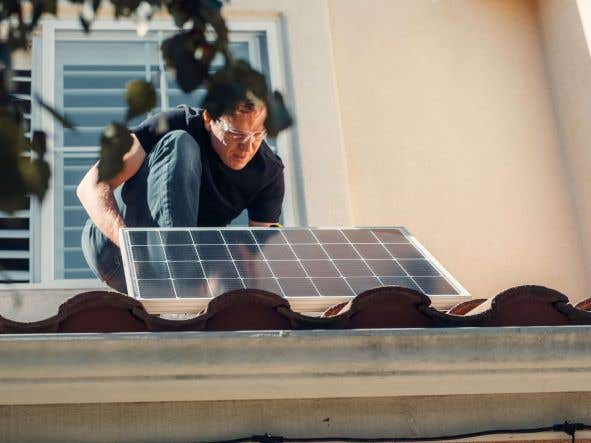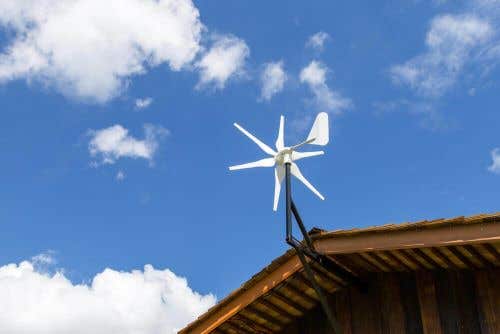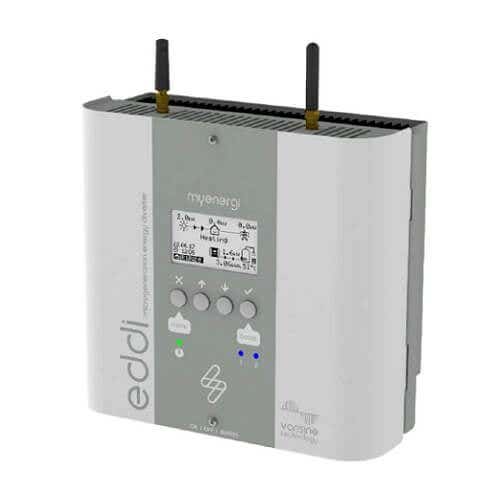Energy saving tips for cheaper bills in the home
We’re all aware of the upcoming cost-of-living crisis, and in particular, the rising costs of energy bills for homes and businesses due for winter 2022/23. While there is nothing that can be done about the price increases, there are several practical ways to save energy at home that can help to keep your energy costs as low as possible.
In this guide, we’re going to outline some tips to save energy this winter. Some are lifestyle changes, and some may require investment in sustainable or renewable energy generation.
How to save on your energy bill
Later in this article we’ll provide some advice on some of the best ways to save energy costs on a day-to-day basis, but to begin with we’ll explore some of the larger actions you can take to save on your energy costs, especially with the volatile energy market in mind.
Invest in renewables
Not only is renewable energy generation better for the planet, it can also save you money on your energy bills in the long run. The ability to generate and store your own energy, such as electricity from wind or solar power, and heat from air or ground source heat pumps, can reduce your costs in the long run.
The only downside of renewable electricity generation is the often high initial investment, meaning they can often take time to pay for themselves. However, As energy prices continue to increase, you may find that you recoup your investment sooner.
Finally, when you generate electricity at home you may be able to sell any excess back into the grid under the Smart Export Guarantee.


Let’s explore some options:
Solar Power: Probably the best known and established form of home electricity generation. Solar panels continue to reduce in price and have become a realistic option for many homes.
Contrary to popular belief, the UK gets plenty enough sunlight for solar to be a realistic investment. Although the government support for solar installation has ended, prices continue to drop.
Solar heating panels can also be used to provide your hot water, provided you live in an area with enough direct sunlight and have enough space for the panels.
Wind Power: A common alternative, or even supplement to, solar power is a wind turbine. Either mounted to a building, or as a larger, free standing unit that’s mounted to a pole, a wind turbine can be an excellent way to reduce money on your bills.
We’re particularly suited to wind power generation here, as over 40% of the wind energy in Europe blows over the UK.
Air or Ground Source Heat Pumps: Air source heat pumps are fairly new kids on the block but work to provide heating and hot water by taking warm air from the outside. They work in exactly the same way as your home fridge/freezer but in reverse. They’re a much more sustainable form of heating than oil or gas, and they still function in outside temperatures well below 0oC which makes them perfect for British winters. Similar in function, ground source heat pumps take their energy from the ground instead.
What’s more, the UK Government currently offers grants of up to £5000 for the purchase and installation of air source heat pumps, and up to £6000 for ground source units. This could offset a significant amount of the upfront investment, meaning you start to see the benefits of these systems sooner.
For more information about sustainable and renewable energy generation, refer to our guide.






Insulation & Windows
Preventing heat loss in winter is one of the best ways to save energy in your home. This can be achieved in a number of ways such as cavity or solid wall insulation, installing double or even triple glazing, roof and loft insulation, draft exclusion, and insulating your floor.
Loft insulation is one of the best ‘bang for your buck’ ways to insulate your home, and you can probably do it yourself. Most homes lose around 25% of their heat through the roof, and as long as you have no issues with damp or condensation, your insulation could pay for itself many times over.
Although a bigger investment, cavity or solid wall insulation can provide significant savings on your energy bills, and help keep your home warm in the winter and cool in the summer. Around 33% of heat loss in uninsulated homes is through the walls, so if you combine this with roof insulation, the savings could be significant. Finally, floor insulation (available for both suspended timber and concrete floors) can complete the set and ensure your home retains as much heat as possible.
How to save on your energy bills in the home
In the short term, here are some energy saving tips for your home:
- Make sure your washing machine is full every time you use it. Fewer, full loads will cost less in the long run.
- Many modern detergents are also just as effective at 30 C as 40 C, so turn the dial down.
- Avoid using the tumble dryer. As one of the most energy intensive appliances, cutting down on dryer usage can go a long way.
- Turn your boiler temperature down a couple of degrees. You probably won’t notice the difference, but over the course of winter these savings can add up.
- Keep your radiators clear. Draping curtains over a radiator, or putting furniture too close will reduce its effectiveness, costing you more money.
- Bleed or flush your radiators. Ensuring there’s no sludge or air trapped in your radiators will make them as efficient.
- Choose showers over baths where you can, and try to reduce the time you’re in there.
- Switch to LED bulbs throughout the home. LED bulbs are much more energy efficient than incandescent, halogen or fluorescent tube lights.
- Turning lights off when you leave a room can also have a big impact on your usage.
- Turn your devices off standby. It’s estimated that the average home spends £35 a year on devices that are on standby.
- Only boil the water you need in the kettle. In 2013 in the UK, overfilled kettles wasted £68m of energy.
- Use a lid on your saucepan when you cook. A lid prevents heat escaping, meaning that whatever you’re cooking gets there faster and uses less energy.
Explore energy saving products at Electrical2Go
The Toledo GLS bulbs are compact, energy efficient and are exceptional value for money. With an average of 15,000 hours lifetime, these bulbs are suitable replacements for incandescent candle lamps of up to 100W. Their 3 year warranty ensures you wont be changing your bulbs regularly. Perfect for your living room, bedroom and in lampshades.
MyEnergi Eddi 2.1 Solar Power Diverter
Eddi is an eco-smart energy management system. It diverts surplus power from
solar PV or wind generation to a designated heating appliance such as an immersion heater. This excess energy will go directly to the appliance (or two sequentially). eddi allows you to stop exporting surplus energy back to the grid and saves you money on your energy bill.
- VariSineTM PWM technology
- Energy monitoring on the go via the
myenergi app - Ethernet port and built-in WiFi for
connecting to the internet - Expansion module option – 2 extra
outputs with temperature control - Supports two heaters (sequentially)
Countdown Timers and Time Delay Switches
Timer switches give you control over your electrical usage and stops appliances staying on longer than needed. For example, hot water immersion heaters have high electrical usage, so it can be annoying if they are accidentally left on. With a timer switch there is no need to worry. They can also be used for controlling lighting, heating and ventilation systems.

![Sylvania Toledo Retro Dimmable 5.5W LED Glass Lamp E27, 5.5 watts [Energy Class A++] (0027125) Sylvania Toledo Retro Dimmable 5.5W LED Glass Lamp E27, 5.5 watts [Energy Class A++] (0027125)](https://www.electrical2go.co.uk/media/catalog/product/s/y/syl-0027125_1.jpg?optimize=high&bg-color=255,255,255&fit=bounds&height=300&width=240&canvas=240:300)

























